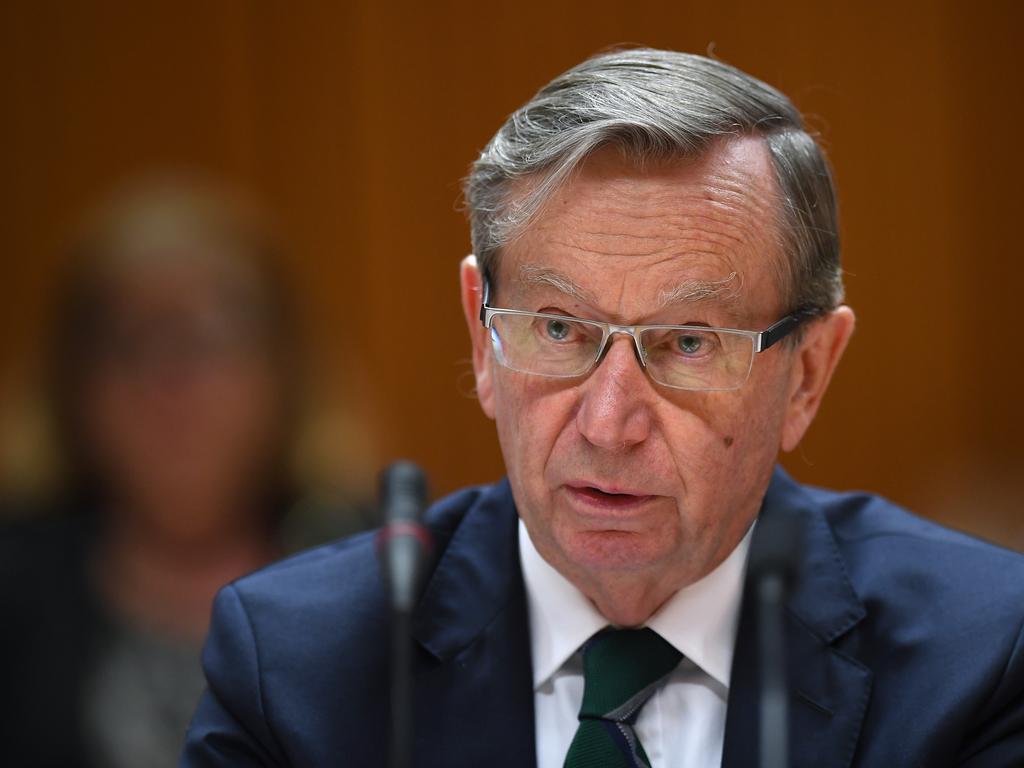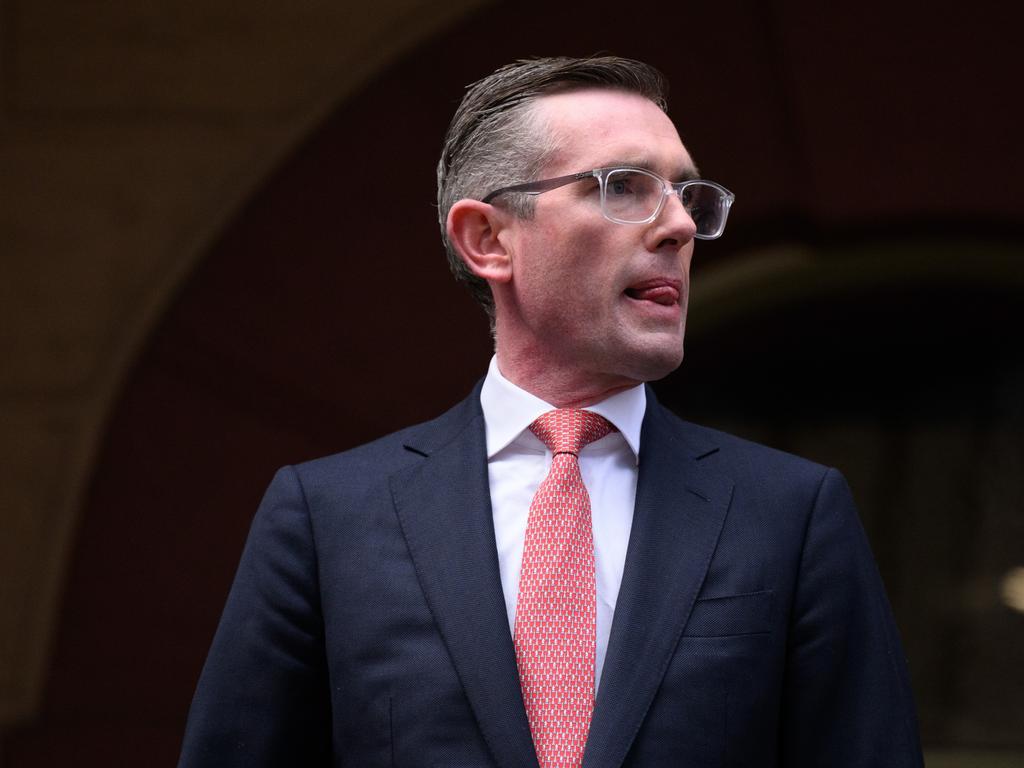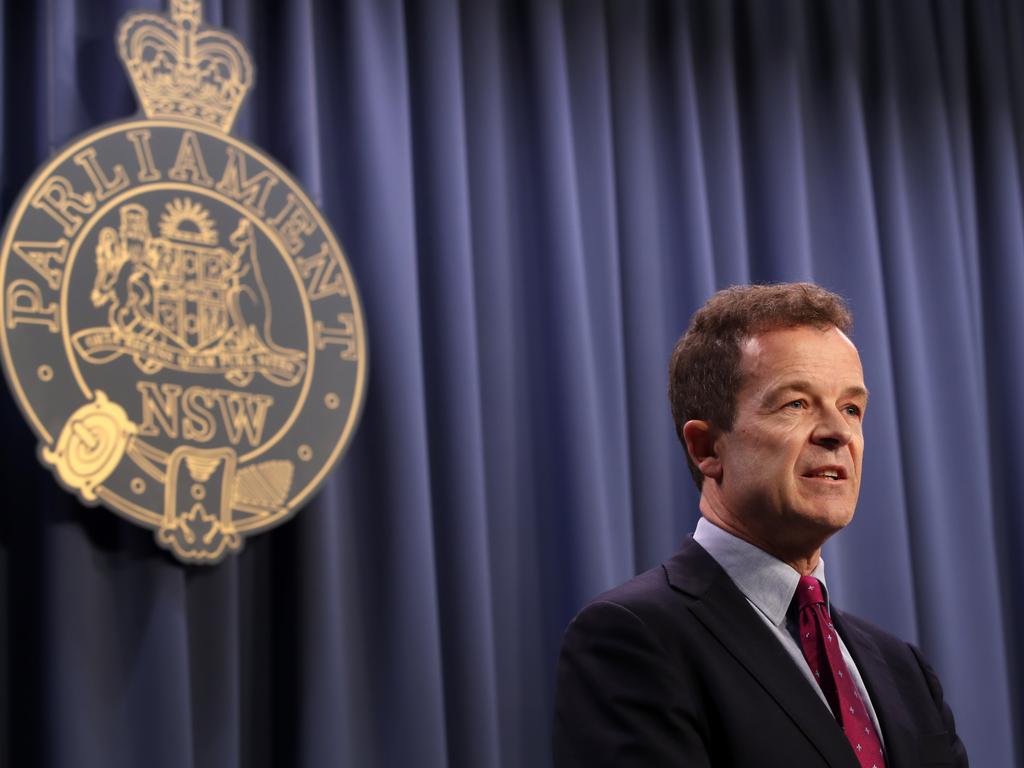
Last November Perrottet was confronted with a unanimous call from a government-dominated parliamentary committee for a legal change that had the backing of Labor, the Greens, One Nation and six of the government’s most senior members.
Their proposal was hardly radical. They wanted the Independent Commission Against Corruption to be held accountable under the normal law for conduct that took place more than seven years ago.
What followed is an example of political self-harm.
The committee that oversees ICAC had recommended that the commission’s actions against four men should be assessed in court without the benefit of retrospective legislation that was enacted in 2015 to “validate” actions by ICAC that would otherwise have been unlawful.
At the time, Mike Baird was premier and Megan Latham was ICAC commissioner.
Before this validation law was rushed through parliament the four men had secured admissions in the NSW Court of Appeal that the commission had no legal basis for declaring them corrupt.
The injustice of changing the law midway through their court case seems to have been recognised by every member of the parliamentary committee.
It would therefore have been smart for Perrottet to recognise political reality and accept the committee’s recommendation.
But that would have meant making a decision on whether to expose the fact that ICAC, not for the first time, had misunderstood its governing statute and exceeded its jurisdiction.
In May, six months after the committee’s call for change, Perrottet’s cabinet rejected this recommendation, only to face a revolt in the upper house that makes a backdown likely.
By then, one of the four men at the heart of this affair had died.
On June 23, the Liberal Party’s Taylor Martin told parliament: “I am reliably informed that cabinet will reconsider its position on this matter in a timely manner.”
In the light of that undertaking, One Nation’s Rod Roberts withdrew an amendment that would have given effect to the ICAC committee’s recommendation. But by then, Perrottet’s government was also being accused of a cover-up after it refused to make public documents that might cast fresh light on this affair.
On August 9, Roberts asked what had happened to the statement in June that cabinet would reconsider its position in a “timely manner”.
According to Finance Minister Damien Tudehope, the issue is now under “active consideration”. Just three men would be affected by the legal change backed by the oversight committee: John McGuigan, John Atkinson and Richard Poole.
Not one of them has a conviction against his name. Yet Baird’s law prevents them from striking down findings of corruption that ICAC itself accepted had no basis in law.
These men have been denied justice for seven years – which is an affront to one of the core principles of the rule of law. They deserve their day in court.
But so does everyone who has been adversely affected by the unlawful conduct retrospectively validated by Baird’s law.
Perrottet’s government needs to accept that nobody should be above the law – particularly a government agency that is supposed to be the enemy of corruption.
Broader inquiry
Anthony Albanese’s pursuit of Scott Morrison’s secret ministerial appointments has entered a period of high risk.
The prime minister’s credibility on this issue depends on the breadth of the inquiry that will soon take place.
Morrison’s conduct needs to be examined but only as part of a broad inquiry into lawmaking during the pandemic and how real power was transferred from parliament to the executive branch of government. That needs to cover the states as well as the federal government to ensure parliamentary control of the executive branch is maintained during the next emergency.
Albanese has rightly observed that Morrison’s secret decision to appoint himself to five ministries undermined the doctrine of responsible government: the executive is responsible to the parliament.
Solicitor-General Stephen Donoghue QC agrees, but it needs to be kept in mind that O’Donoghue merely provided a legal opinion. He did not conduct an inquiry.
Because responsible government is of constitutional importance, it would be irresponsible not to conduct an inquiry after being warned that the doctrine had been undermined.
But if the inquiry focuses only on Morrison and ignores the states it will send the wrong message. Instead of being accepted as a legitimate response to the erosion of democratic norms, it will be dismissed as a move to get square with the Coalition.
A research project by the Rule of Law Institute on the use of emergency powers has identified problems for the states that should be part of the inquiry.
National cabinet was supposed to be co-ordinating the response to the pandemic, but the preliminary results from the institute’s research have identified major inconsistencies in the way the states handed power to officials and informed the community about what was happening.
Health orders in NSW, for example, remained valid for 90 days even if they were not published in the Government Gazette.
Western Australia also eliminated the need for health orders to be gazetted and permitted them to be publicised “in the manner the minister considers suitable”.
But the story for the states is not all bad.
After a poor start, new pandemic laws in Victoria entrench checks on power in ways that deserve to be shared nationally.
Chris Merritt is vice-president of the Rule of Law Institute of Australia.








Procrastination is fast emerging as the defining characteristic of Dominic Perrottet’s government in NSW.